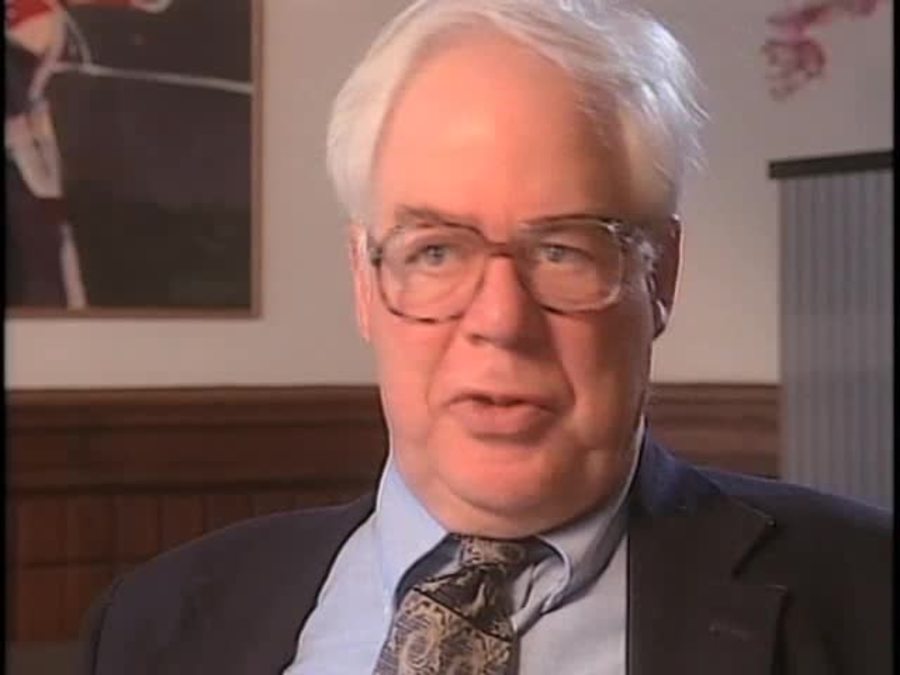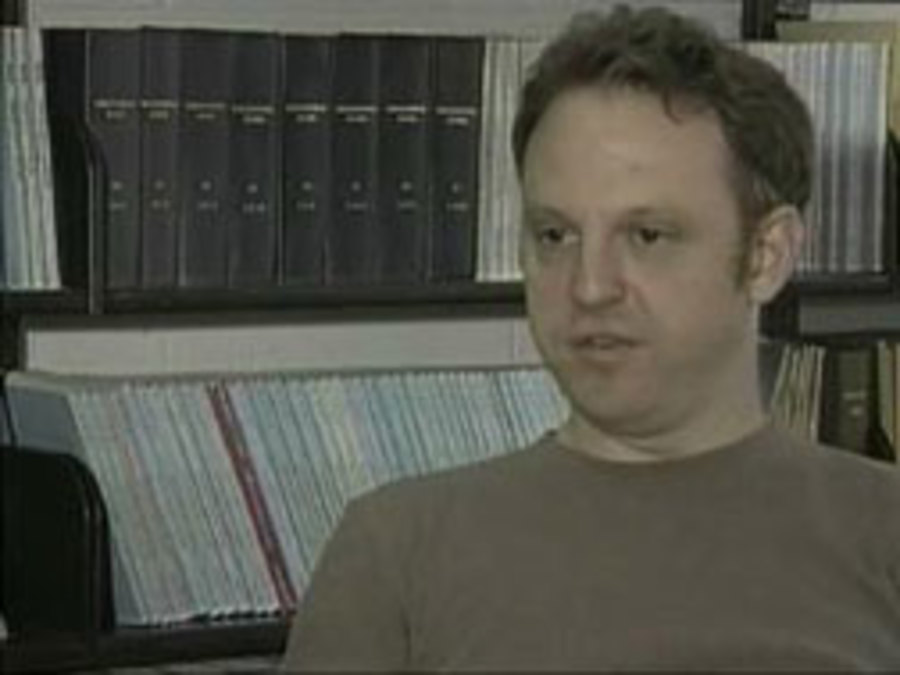Definition of Metaphysics
-
Metaphysics: Internet Encyclopedia of PhilosophyThe purpose of the IEP is to provide detailed, scholarly, peer-reviewed information on key topics and philosophers in all areas of academic philosophy. The Encyclopedia’s articles are written with the intention that most of the article can be understood by advanced undergraduates majoring in philosophy and by other scholars who are not working in the field covered by that article. The IEP articles are written by experts but not for experts in analogy to the way the Scientific American magazine is written by scientific experts but not primarily for scientific experts.
On the Shelf from CCBC Libraries
-
The Depositions by A wry and compassionate selection of essays reflecting on mortals and mortality, from the acclaimed author of The Undertaking. For nearly four decades, poet, essayist, and small-town funeral director Thomas Lynch has probed relations between the literary and mortuary arts. His life's work with the dead and the bereaved has informed four previous collections of nonfiction, each exploring identity and humanity with Lynch's signature blend of memoir, meditation, gallows humor, and poetic precision. The Depositions provides an essential selection from these masterful collections--essays on fatherhood, Irish heritage, funeral rites, and the perils of bodiless obsequies--as well as new essays in which the space between Lynch's hyphenated identities--as an Irish American, undertaker-poet--is narrowed by the deaths of poets, the funerals of friends, the loss of neighbors, intimate estrangements, and the slow demise of a beloved dog. In "Gladstone," from The Undertaking, Lynch reflects on his then twenty-five years as an undertaker at the Midwinter Conference for Michigan funeral directors, which incongruously takes place on an island in the Caribbean. With brutal, generous honesty, "The Way We Are," from Bodies in Motion and at Rest, grapples with Lynch's time as a single parent coming to terms with generations of his family inheritance of alcoholism and recovery. The press of the author's own mortality animates the new essays, sharpening a curiosity about where we come from, where we go, and what it means. As Alan Ball writes in a penetrating foreword, Lynch's work allows us "to see both the absurdity and the beauty of death, sometimes simultaneously." With this landmark collection, he continues to illuminate not only how we die, but also how we live.
Call Number: BD431 .L975 2020 -
Brief Answers to the Big Questions by #1 NEW YORK TIMES BESTSELLER * The world-famous cosmologist and author of A Brief History of Time leaves us with his final thoughts on the biggest questions facing humankind. "Hawking's parting gift to humanity . . . a book every thinking person worried about humanity's future should read."--NPR NAMED ONE OF THE BEST BOOKS OF THE YEAR BY Forbes * The Guardian * Wired Stephen Hawking was the most renowned scientist since Einstein, known both for his groundbreaking work in physics and cosmology and for his mischievous sense of humor. He educated millions of readers about the origins of the universe and the nature of black holes, and inspired millions more by defying a terrifying early prognosis of ALS, which originally gave him only two years to live. In later life he could communicate only by using a few facial muscles, but he continued to advance his field and serve as a revered voice on social and humanitarian issues. Hawking not only unraveled some of the universe's greatest mysteries but also believed science plays a critical role in fixing problems here on Earth. Now, as we face immense challenges on our planet--including climate change, the threat of nuclear war, and the development of artificial intelligence--he turns his attention to the most urgent issues facing us. Will humanity survive? Should we colonize space? Does God exist? ​​These are just a few of the questions Hawking addresses in this wide-ranging, passionately argued final book from one of the greatest minds in history. Featuring a foreword by Eddie Redmayne, who won an Oscar playing Stephen Hawking, an introduction by Nobel Laureate Kip Thorne, and an afterword from Hawking's daughter, Lucy, Brief Answers to the Big Questions is a brilliant last message to the world. Praise for Brief Answers to the Big Questions "[Hawking is] a symbol of the soaring power of the human mind."--The Washington Post "Hawking's final message to readers . . . is a hopeful one."--CNN "Brisk, lucid peeks into the future of science and of humanity."--The Wall Street Journal "Hawking pulls no punches on subjects like machines taking over, the biggest threat to Earth, and the possibilities of intelligent life in space."--Quartz "Effortlessly instructive, absorbing, up to the minute and--where it matters--witty."--The Guardian "This beautiful little book is a fitting last twinkle from a new star in the firmament above."--The Telegraph
Call Number: Q173 .H38 2018 -
Cosmology for the Curious by This book is a gentle introduction for all those wishing to learn about modern views of the cosmos. Our universe originated in a great explosion - the big bang. For nearly a century cosmologists have studied the aftermath of this explosion: how the universe expanded and cooled down, and how galaxies were gradually assembled by gravity. The nature of the bang itself has come into focus only relatively recently. It is the subject of the theory of cosmic inflation, which was developed in the last few decades and has led to a radically new global view of the universe. Students and other interested readers will find here a non-technical but conceptually rigorous account of modern cosmological ideas - describing what we know, and how we know it. One of the book's central themes is the scientific quest to find answers to the ultimate cosmic questions: Is the universe finite or infinite? Has it existed forever? If not, when and how did it come into being? Will it ever end? The book is based on the undergraduate course taught by Alex Vilenkin at Tufts University. It assumes no prior knowledge of physics or mathematics beyond elementary high school math. The necessary physics background is introduced as it is required. Each chapter includes a list of questions and exercises of varying degree of difficulty.
Call Number: QB981 .P47 2017 -
The Big Picture by The instant New York Times bestseller about humanity's place in the universe--and how we understand it. "Vivid...impressive....Splendidly informative."--The New York Times "Succeeds spectacularly."--Science "A tour de force."--Salon Already internationally acclaimed for his elegant, lucid writing on the most challenging notions in modern physics, Sean Carroll is emerging as one of the greatest humanist thinkers of his generation as he brings his extraordinary intellect to bear not only on Higgs bosons and extra dimensions but now also on our deepest personal questions: Where are we? Who are we? Are our emotions, our beliefs, and our hopes and dreams ultimately meaningless out there in the void? Do human purpose and meaning fit into a scientific worldview? In short chapters filled with intriguing historical anecdotes, personal asides, and rigorous exposition, readers learn the difference between how the world works at the quantum level, the cosmic level, and the human level--and then how each connects to the other. Carroll's presentation of the principles that have guided the scientific revolution from Darwin and Einstein to the origins of life, consciousness, and the universe is dazzlingly unique. Carroll shows how an avalanche of discoveries in the past few hundred years has changed our world and what really matters to us. Our lives are dwarfed like never before by the immensity of space and time, but they are redeemed by our capacity to comprehend it and give it meaning. The Big Picture is an unprecedented scientific worldview, a tour de force that will sit on shelves alongside the works of Stephen Hawking, Carl Sagan, Daniel Dennett, and E. O. Wilson for years to come.
Call Number: QH325 .C36 2016 -
Cosmosapiens by Specialist scientific fields are developing at incredibly swift speeds, but what can they really tell us about how the universe began and how we humans evolved to play such a dominant role on Earth?John Hands's extraordinarily ambitious quest is to bring together this scientific knowledge and evaluate without bias or preconception all the theories and evidence about the origin and evolution of matter, life, consciousness, and humankind.This astonishing book provides the most comprehensive account yet of current ideas such as cosmic inflation, dark energy, the selfish gene, and neurogenetic determinism. In the clearest possible prose it differentiates the firmly established from the speculative and examines the claims of various fields such as string theory to approach a unified theory of everything. In doing so it challenges the orthodox consensus in those branches of cosmology, biology, and neuroscience that have ossified into dogma.Its striking analysis reveals underlying patterns of cooperation, complexification, and convergence that lead to the unique emergence in humans of a self-reflective consciousness that enables us to determine our future evolution.This groundbreaking book is destined to become a classic of scientific thinking.(67 black and white illustrations)
Call Number: QH325 .H347 2016 -
Philosophy of Science by Offering an engaging and accessible portrait of the current state of the field, Philosophy of Science: A New Introduction shows students how to think philosophically about science and why it is both essential and fascinating to do so. Gillian Barker and Philip Kitcher reconsider the corequestions in philosophy of science in light of the multitude of changes that have taken place in the decades since the publication of C.G. Hempel's classic work, Philosophy of Natural Science (1966) - both in the field and also in history and sociology of science and the sciences themselves. Theyexplore how philosophical questions are connected to vigorous current debates - including climate change, science and religion, race, intellectual property rights, and medical research priorities - showing how these questions, and philosophers' attempts to answer them, matter in the real world.Featuring numerous illustrative examples and extensive further reading lists, Philosophy of Science: A New Introduction is ideal for courses in philosophy of science, history and philosophy of science, and epistemology/theory of knowledge. It is also compelling and illuminating reading forscientists, science students, and anyone interested in the natural sciences and in their place in global society today.
Call Number: Q175 .B217 2014
Streaming Videos
-
What is Reality? What is reality? What is the universe made of, how does it work? In this Horizon program, Theoretical physicist Leonard Susskind, Nobel Prize winner Frank Wilczek, cosmologist Max Tegmark, quantum mechanic Seth Lloyd, experimental physicist Anton Zeilinger and particle physicist Rob Roser reveal their astonishing visions of reality. It may be vast, beautiful and terrifyingly complex, but understanding the nature of reality is one of the most important quests mankind has ever undertaken.
-
Is There One Truth? Philosopher Richard Rorty argues that the notion of there being one truth is ". . . a bad left-over of Greek metaphysics and Christian theology." Professor Rorty says that there are "lots of descriptions of the universe," and states that "..in the physicist's description, the politician's description, the poet's description...they don't all convert to a single truth."
-
Metaphysics: What There is Systematic thought about the true nature of things is the very foundation of philosophical reasoning. In this program, Rutgers philosophers Brian McLaughlin, Barry Loewer, John Hawthorne, Ted Sider, and Dean Zimmerman discuss the nature of this most ancient branch of philosophy, exploring concepts of causation, time, necessity, and possibility.
Library Databases
-
Academic Search Premier This link opens in a new window

Articles on any subject. This is a good place to start.
-
Arts & Humanities Database

Articles on arts including visual arts, architecture, design, music, literature, and theatre,
and humanities including history, philosophy, and cultural studies. -
Humanities International Complete This link opens in a new window

Articles and ebooks about humanities topics like arts, history, language, law, literature, philosophy, and politics.
-
JSTOR This link opens in a new window

Journals, books, images, and primary sources about many subjects.
-
Opposing Viewpoints This link opens in a new window

Viewpoint essays, topic essays, and news and magazine articles on controversial issues. Browse for topics or search.
-
Social Science Database

Articles on social science topics like communication, criminology, economics, education, political science, psychology, social work, and sociology.
Online from CCBC
-
All about Science by There is a lot of confusion and misconception concerning science. the nature and contents of science is an unsettled problem. For example, Thales of 2,600 years ago is recognized as the father of science but the word science was introduced only in the 14th century; the definition of science is often avoided in books about philosophy of science. This book aims to clear up all these confusions and present new developments in the philosophy, history, sociology and communication of science. It also aims to showcase the achievement of China's top scholars in these areas. the 18 chapters, divided into five parts, are written by prominent scholars including the Nobel laureate Robin Warren, sociologist Harry Collins, and physicist-turned-historian Dietrich Stauffer.
Publication Date: 2014-02-01 -
Form and Being by This volume in the Studies in Philosophy and the History of Philosophy series contains thirteen essays by Lawrence Dewan on metaphysics, the vision of reality from the viewpoint of being. While they take the form of interpretations of the thought of Thomas Aquinas, they are meant as a contribution to perennial philosophy, truth that transcends particular cultures and eras. Written over a period of 25 years, they range from an overall conception of the primary philosophical wisdom, to such particular subjects as the conception of substance in an evolutionary context; the natural seed of intellectual knowledge within the human being; the principle of causality; the immortality of the soul; and the real distinction between particular form and the act of being, crucial for our understanding of reality as created. The method combines close readings of and reflections on the texts of Thomas Aquinas and other relevant thinkers. Because the essays were written largely in response to the work of several prominent twentieth-century metaphysicians, they regularly offer alternative views on extremely fundamental issues. The distinctive contribution of this volume is its focus on the role of form among the various items in the ontological analysis. The most prominent Thomistic metaphysicians in the twentieth century laid great stress on the role of the act of being. Dewan's essays present what is essentially the same picture, but in a way that emphasizes the continuity between Christian philosophers and their predecessors in ancient Greece.
Publication Date: 2014-10-30 -
Are We There Yet? by "We live in exciting times. The frontiers of physics have been pushed to unprecedented horizons. The Holy Grail of fundamental physics research today is to find and describe a theory that explains, at least in principle, all physical phenomena, which in tu"
Publication Date: 2011-03-25 -
Historical Dictionary of Metaphysics by Metaphysics is what Aristotle described as 'the First Philosophy' or 'first science, ' a comprehensive inquiry into the ultimate nature of reality. As such, metaphysics consists of a systematic study of the more general categories of being and of the more general ways of relating entities. The Historical Dictionary of Metaphysics focuses on metaphysics in Western philosophy, the metaphysical tradition that developed under the influence of Greek philosophy, and especially Plato and Aristotle. It offers a comprehensive guide to the many facets of metaphysics through a chronology, an introductory essay, a bibliography, and over 300 cross-referenced dictionary entries on concepts, people, works, and technical terms. This volume is an invaluable resource for student and scholar alike
Publication Date: 2011-01-01 -
What Is This Thing Called Metaphysics? by Why is there something rather than nothing? Does God exist? Does time flow? What are we? Do we have free will? What is truth? Metaphysics is concerned with ourselves and reality, and the most fundamental questions regarding existence. This clear and accessible introduction covers the central topics in metaphysics in a concise but comprehensive way. Brian Garrett discusses the crucial concepts in a highly readable manner, easing the reader in with a look at some important philosophical problems. He addresses key areas of metaphysics: God Existence Modality Universals and particulars Facts Paradoxes of material constitution Causation Time Free will Personal identity Truth. This second edition has been thoroughly revised. Most chapters include substantial amounts of new material, and there are additional chapters on Existence, Modality, Facts and Paradoxes of Material Constitution. What is this thing called Metaphysics? contains many helpful student-friendly features. Each chapter concludes with a useful summary of the main ideas discussed, a glossary of important terms, study questions, annotated further reading, and a guide to web resources. Text boxes provide bite-sized summaries of key concepts and major philosophers, and clear and interesting examples are used throughout.
Publication Date: 2011-04-05 -
 A Historical Introduction to the Philosophy of Science
by
Publication Date: 2001-01-01
A Historical Introduction to the Philosophy of Science
by
Publication Date: 2001-01-01


